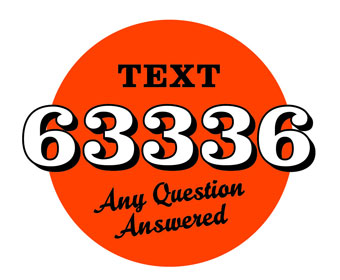AQA 63336, the UK-based premium text trivia service, has launched a commercial blogging tool - AQA2U - that it believes will allow publishers of all types of content to generate revenues by sending SMS updates to an opt-in audience. By doing so, the firm aims to grow its own revenues without having to market to AQA2U text recipients.
April 20, 2009

AQA 63336, the UK-based premium text trivia service, has launched a commercial blogging tool – AQA2U – that it believes will allow publishers of all types of content to generate revenues by sending SMS updates to an opt-in audience. By doing so, the firm aims to grow its own revenues without having to market to AQA2U text recipients.
Publishers – and AQA expects a range of users, from brands, charities and musicians, to consumers with niche interest content to deliver – are restricted to 14 text updates each month, with a maximum daily allowance of three posts. As the service is text based, each post must be no more than 160 characters in length.
Subscribers pay £0.25 per message received, limiting their outlay for each topic they follow to £3.25/month. After the network operators have taken their cut, and the UK Government claimed its VAT, AQA’s founder and CEO Colly Myers told Telecoms.com, £0.12 remains for each text delivered. Between seven and nine pence is given to the publisher, depending on the number of subscribers they have and AQ keeps the rest. If the publisher is a charity, it receives the full £0.12.
A publisher with 25 subscribers could generate annual revenues of £235, said Myers, while 250 subscribers could create revenues of £3,000 a year.
Read telecoms.com’s interview with AQA’s founder and CEO, Colly Myers
AQA’s revenues from the service – between five and seven pence per text – are supplemented by a ten pence charge to each publisher to vet each post (regardless of subscriber numbers) to ensure it meets the firm’s levels of acceptability, offering protection to users from offensive material. Myers said the firm was targeting 800 publishers by the end of September this year (when the firm’s financial year concludes) delivering content to 25,000 customers. A year from launch, he said, he expects half a million AQA2U texts each month to be delivered.
The firm is bidding to increase contact with its existing customer base through the new service. It doesn’t carry out any mobile marketing activities and Myers believes that the relatively low frequency with which users contact the trivia service – around once every three weeks – is because the firm is marketing a number; its 63336 short code. With the new service, he said, the short code number can appear on all messages sent.
AQA believes that publishers will have existing relationships with their subscribers, and so the firm itself will not be required to generate interest among recipients.
With the rise of social networking sites like Myspace and Facebook, as well as the current popularity of Twitter, many opportunities already exist for those wishing to publish special interest content to limited subscriber groups. But Myers dismissed the suggestion that these sites, and Twitter in particular, could offer a comparable service to AQA2U:
“What you get on Twitter is not focused; it’s much more than you bargained for. Content is difficult to find and chaotic, and it’s not protected. And, for the publisher, there’s no incentive because they don’t make any money.”
About the Author(s)
You May Also Like








.png?width=300&auto=webp&quality=80&disable=upscale)


_1.jpg?width=300&auto=webp&quality=80&disable=upscale)


.png?width=800&auto=webp&quality=80&disable=upscale)